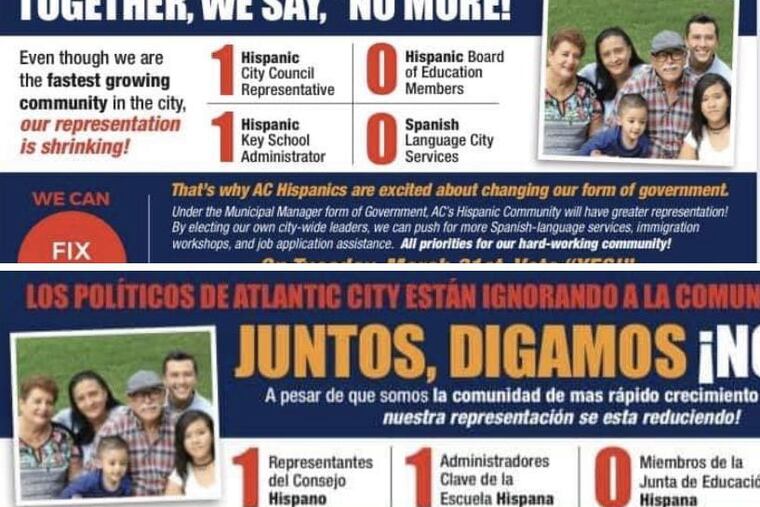Judge: No fraud in Atlantic City special election petitions
Atlantic County Judge Julio Mendez refused a request to cancel the March 31 special election.

A Superior Court judge on Wednesday refused to cancel Atlantic City’s March 31 special election, rejecting allegations of fraud or misconduct by the group that collected signatures on petitions urging a change in the city’s form of government.
“While the citizens of Atlantic City are not represented in this litigation, the public would be the party most harmed by the restriction of their right to petition and vote in a special election that directly affects their daily lives,” Judge Julio Mendez wrote in a 21-page opinion.
“This court will not impose judicially created restrictions upon a special election petition statute where the New Jersey legislature clearly intended to not place restrictions.”
Ironically, the form of government advocated by the petitioners — the Municipal Manager form, to replace the Mayor-Council form — would not allow similar “initiative and referendum" actions by citizens, which opponents have argued would leave the city more vulnerable to having assets like the water authority privatized.
The change in government effort is being bankrolled by Morris Bailey, the president of Resorts Casino, and a variety of building trade unions. It is being spearheaded by UniteHERE Local 54 president Bob McDevitt, who has marshaled his casino worker members to go door-to-door pushing for the change in government.
The city’s civic associations and elected officials, including Mayor Marty Small Sr., oppose the change from a ward system. Small took office last year after then-Mayor Frank Gilliam pleaded guilty to stealing from a youth basketball charity and resigned. Gilliam was the fourth mayor in the city’s recent history to resign under a cloud of corruption.
Mendez said the Atlantic City Democratic Committee, which filed the lawsuit, failed to demonstrate fraud or misconduct in petitions that were filed with 3,288 signatures.
The Atlantic City clerk initially rejected all but 699 signatures, saying she was unable to verify that Jayesh K. Sodha, who had notarized all the other signatures, was a notary in good standing. He was later found to be properly registered.
Mendez also noted that nothing in New Jersey law prevents those circulating petitions from being paid. He rejected the argument that circulators were “paid by signature."
“[T]here were ... certifications submitted ... attesting to the fact that circulators were paid hourly,” Mendez noted.
He also rejected allegations that canvassers lied to people about the purpose of the petition or who employed them.
As to whether the ultimate change of government would disenfranchise certain minority groups, Mendez said that could only be addressed after a change had taken place.
“The court is of the opinion that the public and voters of Atlantic City retain their ability to freely decide for themselves the form of government [of] Atlantic City," Mendez wrote.